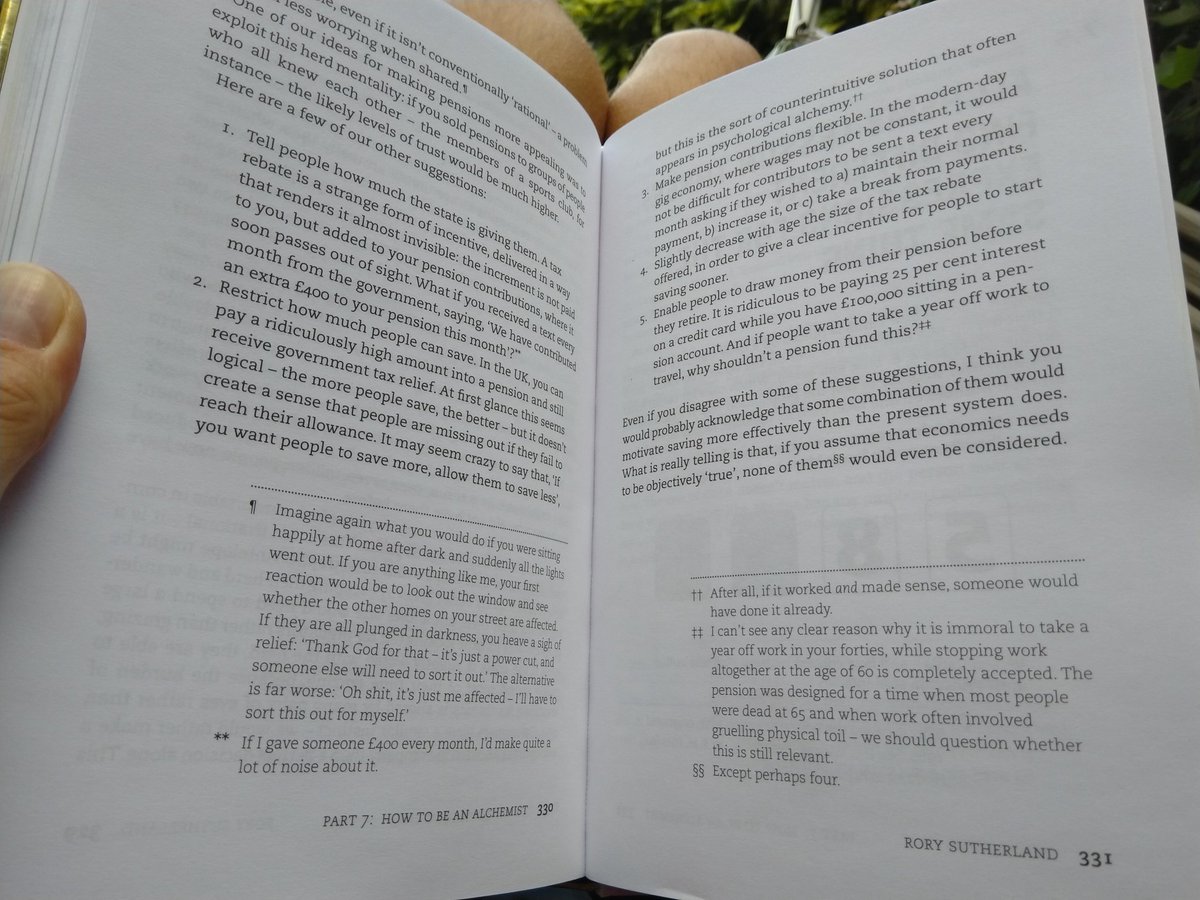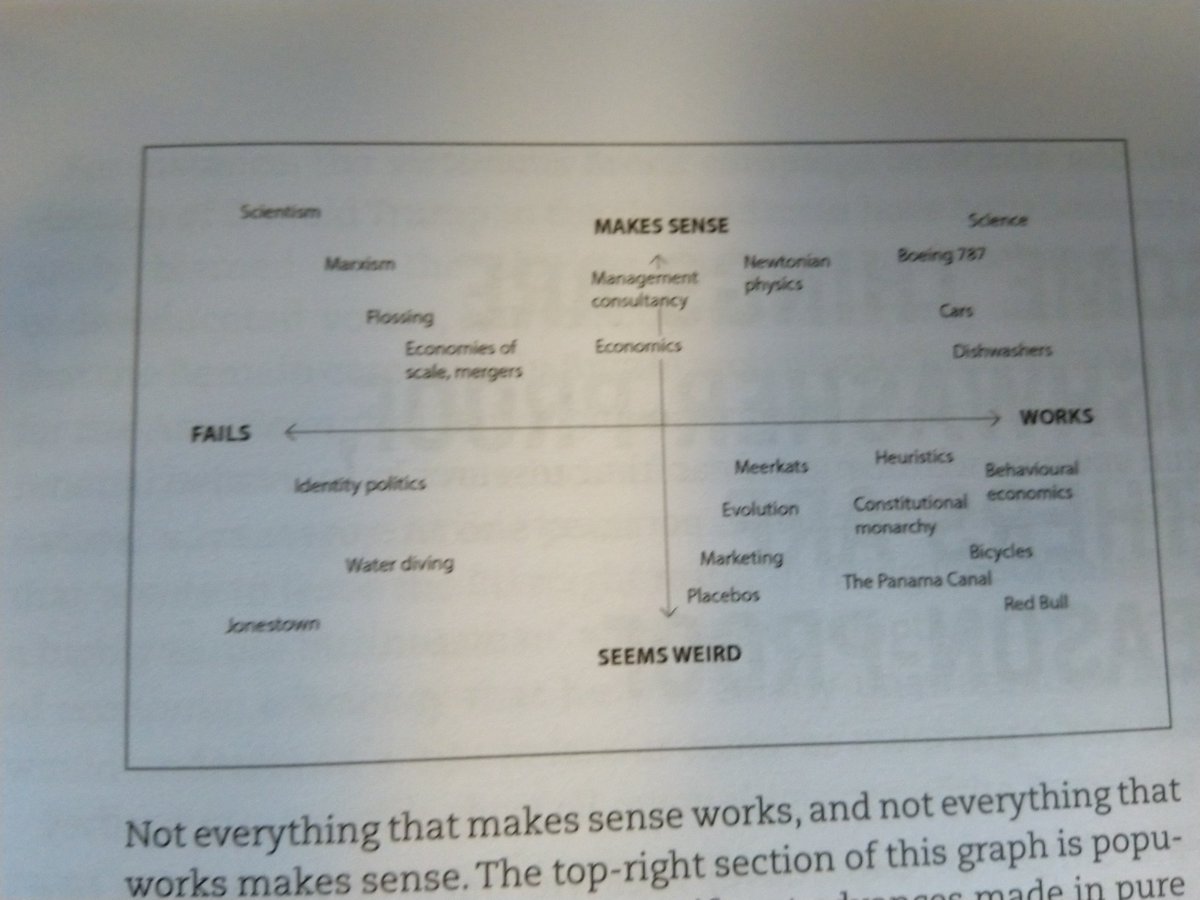Hidden price oflogic: you destroy magic.
Discover Inner Alchemist. The alchemy of this book's title is the science of knowing what economists are wrong about.
Yet we never seem to believe that it is possible for logical solutions to fail
Irrational people are more powerful, because their threats are so much more convincing.
Perhaps a plausible 'why' should not be a pre-requisite in deciding a 'what'
Simple reason for this: you can never be fired for being logical.
Better of not knowing, evolved to deceive ourselves
Logic and psycho-logic do overlap frequently, as you would expect.
However, we still need a new set of lenses: stubborn problems are probably stubborn because they are logic-proof.
Who cares why people recycle, as long as tgey do it? (p.80)
@rorysutherland's asvice to young people: "Find one or two things your boss is rubbish at and be quite good at them"
In coming up with anything genuinely new, unconscious instinct, luck and simple random experimentation play a far greater part in the problem-solving process than we ever admit.
Reluctance to entertain magical solutions results in limitation in number of ideas people are allowed to consider;
it often confines governments to the twin levers of legal compulsion and economic incentive
The shadow of the future (Axelrod)
Social capital is the shadow ofthe future at a societal scale (Clay Shirky)
@rorysutherland: ACCC have their psychology wrong. Promoting a drug as a cure for a narrowly defined condition, as Nurofen did, also increases placebo power
accc.gov.au/media-release/…
Interview with Richard Dawkins:
E.g. Red Bull (tastes weird, smaller can, expensive)
Diet Coke has to taste slightly more bitter, otherwise ppl won't believe it's a diet drink
Keynes: "It's better to be vaguely right than precisely wrong"
Blurry 'pretty good' decision-making has simply proven more useful than precise logic
a simplified world, or by finding satisfactory solutions for a more realistic
world. Neither approach, in general, dominates the other"
nobelprize.org/prizes/economi…
But just because it's irrational (satisficing), it doesn't mean it isn't right
People don't choose Brand A over B because they think A is better, but because they are more certain that it is good.
No good judging things on their average expectation without considering possible level of variance
In a world where satisficing is necessary, they are often not only the easiest option but the best.
'bin-hacks' to increase recycling, solving the problem backwards
thedrum.com/creative-works…
Give people a reason and they may not supply the behaviour; but give people a brhaviour and they'll have no problem supplying the reasons themselves (p.315)
1 tell people how much the state is giving them
2 Restrict how much ppl can save
3 make contributions flexible
4 slightly decrease tax rebate with age
5 allow ppl to draw money before retirement
























